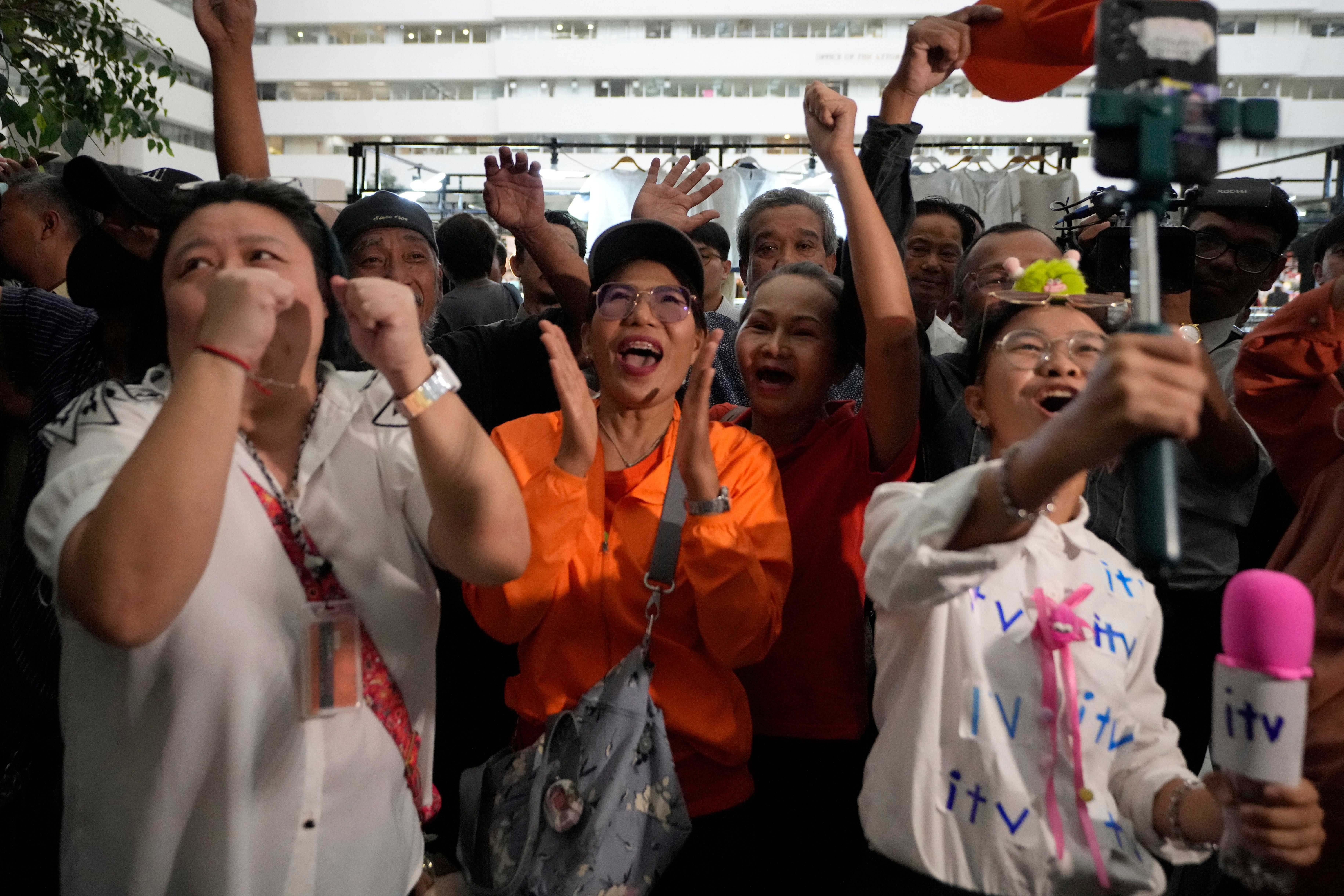Thai court says Pita didn’t break law, six months after he was blocked from becoming PM
Pita Limjaroenrat’s political career remains in question with another serious legal challenge
Your support helps us to tell the story
From reproductive rights to climate change to Big Tech, The Independent is on the ground when the story is developing. Whether it's investigating the financials of Elon Musk's pro-Trump PAC or producing our latest documentary, 'The A Word', which shines a light on the American women fighting for reproductive rights, we know how important it is to parse out the facts from the messaging.
At such a critical moment in US history, we need reporters on the ground. Your donation allows us to keep sending journalists to speak to both sides of the story.
The Independent is trusted by Americans across the entire political spectrum. And unlike many other quality news outlets, we choose not to lock Americans out of our reporting and analysis with paywalls. We believe quality journalism should be available to everyone, paid for by those who can afford it.
Your support makes all the difference.A court in Thailand has cleared progressive politician Pita Limjaroenrat of allegations of violating election law, almost six months after the popular prime ministerial candidate was forced to step down.
Mr Pita was suspended from parliament pending the court ruling after he led his party to a stunning electoral victory on a campaign that challenged the country’s influential conservative establishment.
On Wednesday, Thailand’s Constitutional Court dismissed the case against Mr Pita which alleged that he violated election laws by owning shares in a media company while running for the elections.
The Harvard alumnus was the executor of his father’s estate which included stock in iTV, a defunct independent television station.
Thai laws prohibit members of parliament from owning or holding shares in media companies.
Eight out of the nine judges on the panel ruled in favour of Mr Pita and said iTV had not been operational since 2007 – before he applied for the party-list candidacy.
"ITV did not operate any newspapers or media businesses, therefore, the shareholding didn’t violate the Constitution’s Article 98. According to the above reasoning, the accused member’s parliamentary status isn’t suspended," the ruling said.
After the verdict, Mr Pita told reporters outside the court: "I’m happy and will keep working as planned.”

Dozens of his supporters who had gathered outside the court with signs and flowers broke into a celebration and cheered for Mr Pita, calling it “justice”.
“There is justice for the people. At first, I didn’t trust the court but now I see justice,” said Jiraporn Bussawaket, 76.
The case against Mr Pita was brought by the Election Commission after his reformist Move Forward party won the most number of seats in the general election held in May. He was announced as the prime ministerial candidate of a pro-democracy coalition.
But in July he was suspended as a member of the House of Representatives after the court agreed to look into the case.
The party’s electoral success signalled a remarkably strong demand for change among Thai voters following almost a decade of military-controlled governance.
However, power was withheld from the party by the military-appointed Senate even though his candidacy was backed by parties including Pheu Thai which was linked to former premier Thaksin Shinawatra.
This cleared the path for a fresh coalition led by Pheu Thai, which later collaborated with various conservative and pro-military factions to appoint Srettha Thavisin as the prime minister.

Mr Pita is still facing another serious legal challenge. On 31 January, he will appear in the court on allegations of attempting to overthrow Thailand‘s system of government by proposing an amendment to a law that makes it illegal to defame Thailand‘s royal family, an offence known as lese majeste.
Critics of the law, which carries a penalty of up to 15 years in prison for speaking against the monarchy, say it is often abused as a political weapon and stifles free speech.
A ruling against Move Forward could potentially result in its disbandment and a prohibition on its leaders from participating in active politics, resembling a judgment almost four years ago that dissolved its predecessor, Future Forward.

Join our commenting forum
Join thought-provoking conversations, follow other Independent readers and see their replies
Comments